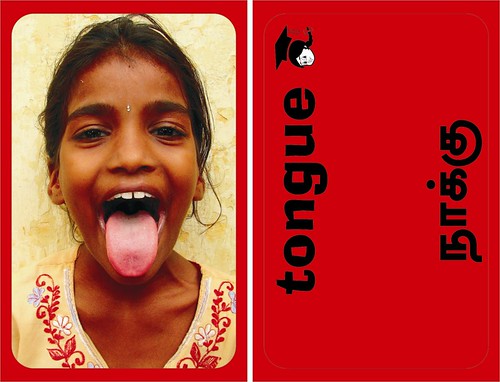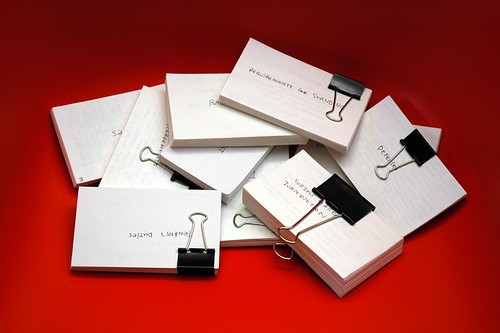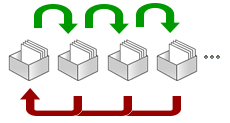I have used flashcards a lot as both an English teacher (several years ago) and as a learner of Japanese. Here's an example of a flashcard:

I found this one here. It looks like it's a flashcard being used by a learner of English from India. The learner looks at one side of the card, sees the image, tries to remember the English word for it, and then checks the answer on the reverse of the card.
If you make many flashcards, you might have something like this:

Now, here's the problem: You can practice these flashcards whenever you want, but when should you do this? How often? Which cards?
One attempt at answering these questions was given by Sebastian Leitner in 1970. He proposed a system where you get a number of boxes and line them up. You put all the cards in box 1. Cards in box 1 are reviewed often, maybe every day. Cards in box 2 are reviewed less often, maybe every 3 days. Cards in box 3 even less - maybe every 10 days. etc.
If you answer a card correctly, it moves to the second box. If you answer the card correctly again, it moves to the third box etc. If you get any card wrong, it goes back to the first box.

The general principle is that you spend less time looking at cards you know well and more time looking at cards you find difficult. In this way, you maximize the amount that you remember, and minimize the amount of work you need to do. This general technique is called Spaced Repetition.
Leitner's system is a simple example of Spaced Repetition. More sophisticated techniques ask how easy it was to recall the answer. Was it hard, normal or easy? If it was easy, the card gets scheduled for review very far into the future. Difficult cards are scheduled sooner.

Of course, computer software is very good at organising this for you. There are many flashcard programs out there and many of them use Spaced Repitition. I've used quite a few of them but 3
If you want to find out about Anki, I recommend watching the introductory videos on the website.
Wikipedia isn't bad. You can find articles there on Leitner and Spaced Repitition. Supermemo has done quite a lot of research into it as David kindly pointed out. Mnemosyne is also popular.
ReplyDeleteYeah, I actually checked my deck and the first card I have was created in August 2007 so exactly three years ago!
ReplyDeleteThis was just an introduction to my next post which will talk about the setup I have in Anki and the modification I've made to the rikaichan plugin for firefox. Stay tuned.
In fact I am japanese, I never study hard KANJI like you! You are great!
ReplyDelete